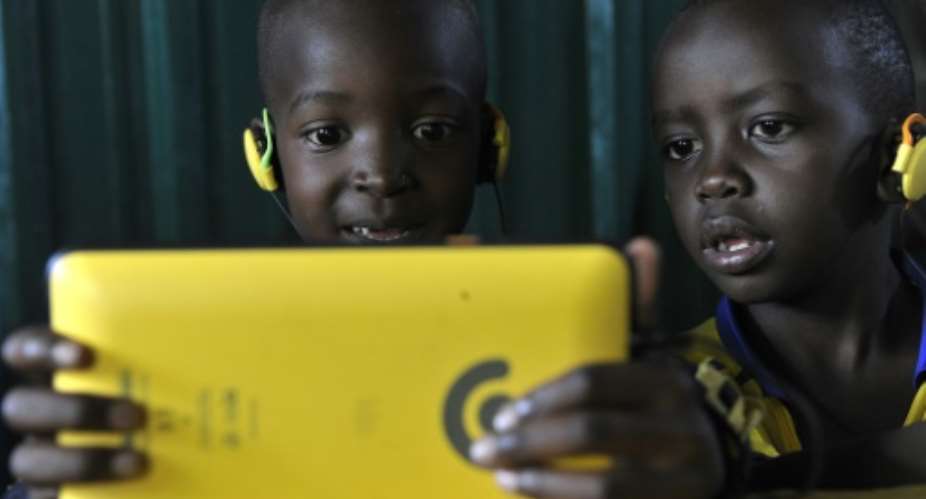18 November 2015, Cape Town – Africa is the last great, untapped telecommunications market. As straightforward subscriber growth slows in the rest of the world, Africa shows only 47 percent market penetration and offers 500 million potential mobile subscribers.
With this, innovation in Africa is occurring across three key areas – low cost mobile handsets, mobile payments and mobile health – that present massive growth opportunities. These are the clear market sentiments as industry players from around the world have converged in Cape Town for the 18th annual Africa.Com.
Diogo Sousa, Partner: Technology, Media and Telecommunications, KPMG Angola says: “Africa’s telecoms sectors will continue to undergo huge transformation. While over the last decade this has largely been fuelled by a series of deregulation, convergence and massive investments in undersea cabling and inland fixed and mobile infrastructure – the next wave of transformation in the telecoms sectors will undoubtedly be mobilised by Africa’s +1bn potential consumers.”
According to Frost and Sullivan, mobile penetration in the sub-Saharan Africa region is expected to increase from 52 percent in 2012 to 79 percent in 2020. With this, the introduction of prepaid services and a steady decline in tariffs has meant that more than half of Africa’s close to one billion people can now afford a mobile phone. However, as lower income groups are being targeted, telecoms operators are actively looking to drive mobile and smartphone adoption by offering low-cost handsets and network solutions to mitigate infrastructure issues.
Additionally, individuals will soon have greater access to the internet as a result of digitisation (the migration from analogue to digital technology). It is estimated that the successful completion of the digitisation process will bring about a further drop in telecommunications carriage fees and drive growth in ARPUs (average revenue per users), thereby increasing profitability and allowing content producers to focus on better material. This in turn also bodes immense opportunities to further bridge the digital divide between emerging and developed markets, as digitisation will not only impact the telecommunication industry but also entertainment industries, financial service, agriculture, healthcare, consumer market, and education sectors.
“The transition from traditional to digital models is already prompting a shift in revenue and business models, where notable impact of this can be seen across financial services with the success of mobile money and mobile payments, as well as the rise of alternative business models in the digital music industry and, education where digitisation enhances reach in a region traditionally associated with low literacy levels,” says Sousa. “And we expect that digital solutions will begin to have a notable impact on mobile health too, as innovations in mobile health are transforming health care delivery to both urban and rural communities in Africa.”
Africa is certainly viewed as a growth target and no longer an emerging market and, the relative strength and growth potential of Africa presents endless opportunities. At the same time, however, never before has the telecoms landscape been more complex. Telecoms operators are faced with increasing competition from non-telecoms providers, reduced network investments and the rise of digital media and mobile technology. Added to this, consumers increasingly demand enhanced converged services.
“As communications becomes an increasingly integral element to effective functioning economies in Africa, staying on top of changing consumer behaviour will remain a critical challenge and opportunity for telecoms operators. This is particularly true in the face of new mobile technology, where innovative and sustainable review opportunities will need to be found, quickly. With that, telecoms operators are constantly under pressure to be ready to adapt their business models and service offerings – as improving and managing the customer experience becomes ever more critical to the operator’s survival in Africa’s telecoms sectors today,” concludes Sousa.
About KPMG International
KPMG is a global network of professional firms providing Audit, Tax and Advisory services. We operate in 155 countries and have more than 162,000 people working in member firms around the world. The independent member firms of the KPMG network are affiliated with KPMG International Cooperative ("KPMG International"), a Swiss entity. Each KPMG firm is a legally distinct and separate entity and describes itself as such.





 Meta releases new version of conversational AI across its platforms
Meta releases new version of conversational AI across its platforms
 Cape Town named Africa’s Best Airport 2024 by Skytrax
Cape Town named Africa’s Best Airport 2024 by Skytrax
 Bono East: Four injured after hearse transporting corpse crashes into a truck
Bono East: Four injured after hearse transporting corpse crashes into a truck
 ‘Be courageous, find your voice to defend our democracy’ — Sam Jonah urges journ...
‘Be courageous, find your voice to defend our democracy’ — Sam Jonah urges journ...
 Exodus of doctors, nurses and teachers have worsened because of unserious Akufo-...
Exodus of doctors, nurses and teachers have worsened because of unserious Akufo-...
 2024 election: Avoid insults, cutting down people in search of power – National ...
2024 election: Avoid insults, cutting down people in search of power – National ...
 ‘You passed through the back door but congratulations’ — Atubiga on Prof Jane Na...
‘You passed through the back door but congratulations’ — Atubiga on Prof Jane Na...
 Government’s $21.1 billion added to the stock of public debt has been spent judi...
Government’s $21.1 billion added to the stock of public debt has been spent judi...
 Akufo-Addo will soon relocate Mahama’s Ridge Hospital to Kumasi for recommission...
Akufo-Addo will soon relocate Mahama’s Ridge Hospital to Kumasi for recommission...
 We must not compromise on our defence of national interest; this is the time to ...
We must not compromise on our defence of national interest; this is the time to ...
